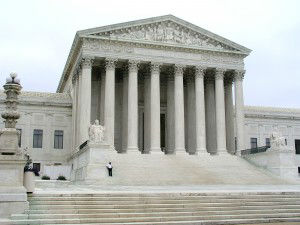In a 5-4 decision, the U.S. Supreme Court struck down a municipal ordinance enacted by the City of Los Angeles. In City of Los Angeles v. Patel, the majority held that the ordinance, which authorized police to inspect motel registration records without advance notice, violated the Fourth Amendment of the U.S. Constitution.
Factual Background
Under the ordinance at issue, hotel and motel operators are required to collect and record detailed information about their guests in either paper or electronic form. The records must contain: the guest’s name and address; the number of people in the guest’s party; the make, model, and license plate number of the guest’s vehicle if the vehicle will be parked on hotel property; the guest’s date and time of arrival and scheduled date of departure; the room number assigned to the guest; the rate charged and the amount collected for the room; and the method of payment. Pursuant to the ordinance, this information must be kept for a period of ninety (90) days.
As previewed in an earlier post on this blog, the challenged ordinance also contains a warrantless inspection requirement, which states that hotel guest records “shall be made available to any officer of the Los Angeles Police Department for inspection,” provided that, “[w]henever possible, the inspection shall be conducted at a time and in a manner that minimizes any interference with the operation of the business.” Failure to comply with an officer’s inspection demand is a misdemeanor, punishable by up to six months in jail and a $1,000 fine.
The Supreme Court’s Decision
The majority of the Supreme Court held that the Los Angeles ordinance was unreasonable under the Fourth Amendment, because hotel owners are subjected to punishment for failure to turn over their records without first being afforded the opportunity for precompliance review.
In reaching its decision, the majority confirmed that facial challenges to ordinances and statutes (as opposed to challenges to particular applications of statutes), are permitted under the Fourth Amendment . Justice Sonia Sotomayor, in delivering the majority opinion of the Court, stated that “(f)acial challenges under the Fourth Amendment are not categorically barred or especially disfavored.” The majority also confirmed that government records inspections could constitute “searches” under the Fourth Amendment.
With regard to the ordinance, the Court held that the provision of the Los Angeles Municipal Code that requires hotel operators to make their registries available to the police on demand is facially unconstitutional because it penalizes them for declining to turn over their records without affording them any opportunity for pre-compliance review. According to the ordinance, a hotel owner who refuses to give an officer access to his or her registry can be arrested on the spot. The Court ultimately found that this type of requirements is “unreasonable” and business owners cannot be put to this position.
Most importantly, the decision appears to create a bright-line rule for administrative searches. According to the Court, “absent consent, exigency, or the like, in order for an administrative search to be constitutional, the subject of the search must be afforded the opportunity to obtain precompliance review before a neutral decisionmaker.”
The majority’s decision mandates that an “opportunity for precompliance review” is necessary for almost all governmental inspection programs, excluding only those in four closely regulated industries (firearms dealing, liquor sales, mining, and automobile junkyards). Accordingly, New Jersey public entities are advised to review their governmental records or conditions inspection programs for compliance with Patel.
For more information about the court’s decision or the legal issues involved, we encourage you to contact a member of Scarinci Hollenbeck’s Government Law Group.

